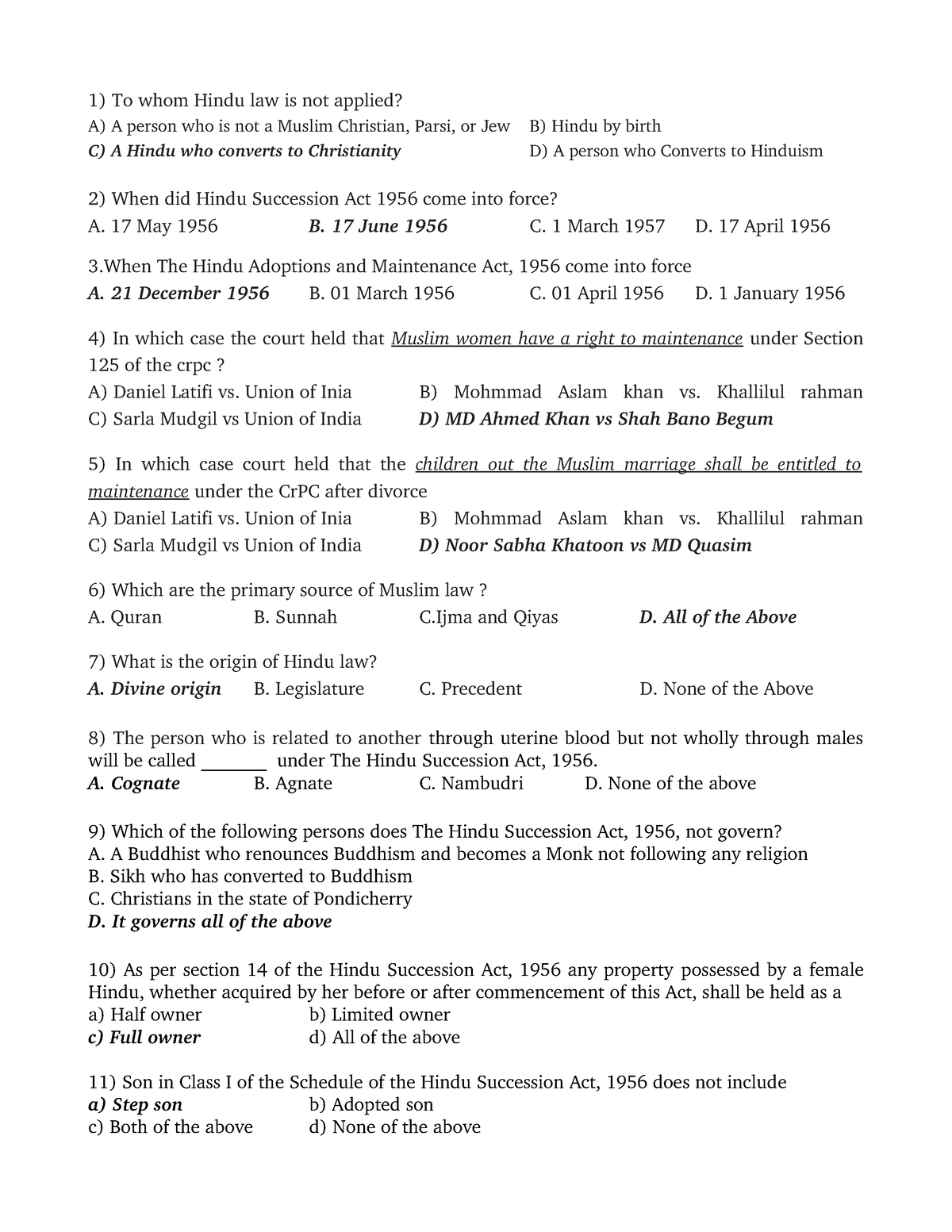To whom Hindu law is not applied? When did the Hindu Succession Act 1956 come into force? When did The Hindu Adoptions and Maintenance Act, 1956 come into force? In which case did... To whom Hindu law is not applied? When did the Hindu Succession Act 1956 come into force? When did The Hindu Adoptions and Maintenance Act, 1956 come into force? In which case did the court hold that Muslim women have a right to maintenance under Section 125 of the CrPC? In which case did the court hold that the children of the Muslim marriage shall be entitled to maintenance under the CrPC after divorce? Which are the primary sources of Muslim law? What is the origin of Hindu law? The person who is related to another through uterine blood but not wholly through males will be called? Which of the following persons does The Hindu Succession Act, 1956, not govern? As per section 14 of the Hindu Succession Act, 1956 any property possessed by a female Hindu, shall be held as? Son in Class I of the Schedule of the Hindu Succession Act, 1956 does not include?

Understand the Problem
The question is asking about various aspects of Hindu and Muslim law, including specific legal acts, case laws, and definitions relevant to Hindu law and its application. It seeks to evaluate knowledge of legal principles as outlined in statutes and case law.
Answer
1) C, 2) B, 3) A, 4) D, 5) D, 6) D, 7) A, 8) A, 9) D, 10) c, 11) a
- C, 2) B, 3) A, 4) D, 5) D, 6) D, 7) A, 8) A, 9) D, 10) c, 11) a
Answer for screen readers
- C, 2) B, 3) A, 4) D, 5) D, 6) D, 7) A, 8) A, 9) D, 10) c, 11) a
More Information
These entries reflect the application of Hindu law and related acts. The Hindu Succession Act and the Hindu Adoptions and Maintenance Act, both enacted in 1956, primarily govern Hindus and related groups, excluding Muslims, Christians, Parsis, and Jews.
Sources
- The Hindu Adoptions and Maintenance Act, 1956 - en.wikipedia.org
- Hindu Succession Act, 1956 [PDF] - indiacode.nic.in
- Women and Family Law - Social Welfare - Vikaspedia - socialwelfare.vikaspedia.in
AI-generated content may contain errors. Please verify critical information